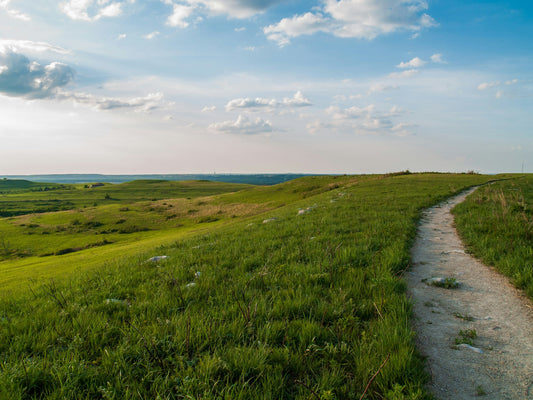The Legality of Hemp in Colorado: A Comprehensive Guide
Colorado is an early pioneer state in hemp regulation, and a unique regulatory environment has developed in response to the question, "Is Delta 9 legal in Colorado?"
Long known as being progressive on cannabis, Colorado has also implemented strict requirements on compliance, product limitations, and testing for all hemp-derived products.
Colorado Attorney General said companies selling products with high levels of THC are being taken action against as he pointed out how the state wants to prevent misuse of hemp regulations.
This article discusses in detail the regulatory laws of Colorado that govern hemp, product restrictions, compliance requirements, and current legislation for the benefit of consumers and businesses asking "Is Delta 9 legal in Colorado?" in and around the state.
Defining Hemp in Colorado
Industrial Hemp Legal Definition
Colorado Revised Statutes (CRS) §35–61–101(7) defines industrial hemp as any variety of the Cannabis sativa L. plant that has a delta-9 tetrahydrocannabinol concentration of no more than 0.3 percent on a dry weight basis.
That mirrors the federal standard set in the 2018 Farm Bill. However, Colorado states that chemically modifying or converting naturally occurring cannabinoids from hemp does not constitute industrial hemp, a deterrent to synthetic cannabinoids in the state.
Definition of Hemp Products
Under Colorado law, "hemp product" means any finished item that includes cosmetics, dietary supplements, food, food additives, or herbs for human use or consumption. The product has to contain natural hemp derivatives (cannabinoids, compounds, and isolates) with proper THC limits.
Products must also maintain a CBD-to-THC ratio of at least 15:1, highlighting high CBD and low THC for legal hemp products.
Legislative History of Hemp Legislation in Colorado
Early Hemp Legislation And Federal Influence
Before hemp became federally legalized in 2018, Colorado was one of the first states to permit regulated cannabis and hemp production, which made it easy to answer, "Is Delta 9 legal in Colorado?"
The 2018 Farm Bill passed, and Colorado further reinforced and expanded its hemp program to provide additional opportunities for local farmers and manufacturers to grow and source industrial hemp and hemp-derived products with stringent compliance standards.
Recent Legislative Developments and Related Legal Actions
In the last decade, Colorado has moved aggressively to police and regulate hemp products, mainly when THC content is high. Colorado Attorney General (AG) sued a company and alleges the company sold unlawful hemp products on June 11, 2024.
This legal action comes on the heels of the state's resolve to stop the flow of products with over-legal THC limits and being misrepresented as hemp. Colorado's stance on regulation has also been built by guidelines against the chemical alteration of cannabinoids in recognizing that high-THC cannabis and hemp are different.
Colorado’s Current Hemp Regulations
- All hemp processing facilities in Colorado must be registered and comply with rigorous compliance practices, such as third-party cGMP audits, to ensure product purity and/or the quality of the finished product.
- All facilities in Colorado involved in processing, packaging, or preparing hemp for export from the state must meet all these requirements to ensure that only safe, compliant products enter the market.
- Products manufactured for export and where the THC content can be higher as long as they are not sold within Colorado are subject to Safe Harbor Product and Manufacturer Requirements.
Safe Harbor Criteria and the Compliance Standards
Colorado's Safe Harbor regulations allow Colorado to process certain hemp-derived compounds, as long as it is only for out-of-state distribution. However, products manufactured under Safe Harbor's confines must meet specific packaging, labeling, and safety standards that reflect Colorado's cautious approach to THC content and product safety.
Hemp Products Age Restrictions & Labeling Requirements
In Colorado, hemp products to be used for human consumption carry strict labeling requirements, such as indicating THC and CBD content. There are no specific age limits for hemp-derived products.
Still, additional oversight heights are taken into consideration when they may spark interest in minors or the potential of high concentrations of THC.
Product-Specific Restrictions
The Limitations of Delta-8 THC and Other Cannabinoids
Delta-8 THC, HHC, and synthetic cannabinoids from hemp are illegal to sell in Colorado. According to the state, if they chemically modify or convert cannabinoids, they don't qualify as industrial hemp.
Businesses are being warned by local law enforcement not to sell synthetic cannabinoids, but companies are urged to remain with natural cannabinoids that fulfill Colorado's hemp specifications.
Limits of THC in Milligrams and CBD to THC Ratio
For hemp products sold within Colorado, the state imposes a maximum THC limit of 1.75 milligrams per serving and requires a CBD-to-THC ratio of 15:1 or higher. Because of this restriction, products focus on the non‐intoxicating effects, so products are separate from recreational cannabis.
Total THC cannot exceed 0.05 milligrams per gram in any individual broad spectrum product, OR 6.0 milligrams of total THC per container, if the container includes multiple cannabinoids.
Export Only Hemp Products Safe Harbor Exemption
That means that due to Colorado's Safe Harbor exemption, products crafted within the state with higher THC concentrations can be created for export. Because of this exemption, manufacturers can service markets with looser THC regulations.
However, these products can't be sold within the state. Safe Harbor quality standards for our hemp products must be met to be safe and compliant with cGMP audits.
Compliance Tips for Hemp Businesses in Colorado
In Colorado, all hemp products require regular THC testing to keep up with the state's low THC limits, which answers, "Is Delta 9 legal in Colorado?" Businesses can remain safe from noncompliance issues when they work with accredited laboratories and conduct third-party testing.
Businesses are advised to label their products with accurate CBD to THC ratios and THC content per serving and per container so that consumers and regulators can be transparent.
Product Registration and Safe Harbor Requirements
Businesses that want to comply with Colorado's regulatory requirements should register their products and facilities and, when required, implement Safe Harbor guidelines.
Colorado fosters industry focus on quality and safety by requiring Safe Harbor registrants to undergo third-party cGMP audits. The documentation should specify who did the sourcing and testing and the product composition in case the regulator wants to conduct a quick review.
Documentation And Preparation For Audits
Compliance requires Colorado organizations to keep thorough documentation. Sourcing, testing, and formulation of the product have records readily available for audits. Under Safe Harbor guidelines, businesses can expect regular inspections and audits if their products are for out-of-state distribution.
Current Colorado's Legal Status - Ongoing Litigation
Colorado AG recently sued on hemp regulation, showing the state is proactive. The legal action was against a company it said was selling products with high THC levels as hemp, a sham Colorado regulators are trying to stamp out. If the company wins this case, it could determine the future of other enforcement actions if businesses are trying to skimp on THC.
Legal Risks For Non – Compliant Products
The AG's case also highlights the legal risks for businesses selling high-THC products such as hemp. Violation of Colorado's hemp laws could result in penalties against companies, recalls, and even criminal charges.
This litigation is a reminder for companies to be strict with the THC limits and always confirm products do not go outside Colorado state's definition of industrial hemp.
Future Job Opportunities
Colorado's hemp industry has created several jobs from cultivation and processing to manufacturing and retail. So far, however, recent restrictions imposed on high-THC products have modified the market, with businesses focusing on compliant low-THC products.
The change has led to the growth of hemp-specific products, like CBD topicals, dietary supplements, and cosmetics.
Comparison of Sales of Hemp Products
Licensing fees and taxes on hemp product retail sales aid Colorado's state revenue. The Safe Harbor provision has also opened more revenue vices if manufacturers can export those higher THC products to softer states that have softer laws.
However, Colorado’s restrictions for in-state sales diminish tax income from products that don't meet Colorado's stringent THC level. In that case, it also restricts those products from having a broad market.
Hemp Cultivation Has Environmental Benefits
Hemp is an eco-friendly crop and aligns with Colorado's environmental goals relative to supporting soil health, lowering the usage of pesticides, and preserving sustainable agriculture.
Hemp's fast growing and versatile nature has prompted farmers to apply more sustainable methods while also helping Colorado's agricultural industry and a greener future.
Conclusion
The query, "Is Delta 9 legal in Colorado?" is pretty much cleared now. It is obvious thatColorado's hemp regulations reinforce the state's safety and regulatory compliance commitment, again setting the bar high on the THC max-content and zero tolerance on synthetic cannabinoids.
Colorado works by implementing Safe Harbor provisions that allow businesses to thrive within the legal space, and requiring companies to have all the stringent documentation in place. Though the state approach may seem restrictive, it is as it attests to the state's commitment to consumer protection and responsible hemp industry growth.
Based on evolving legislation, market demand, and industry adaptation to regulatory standards, the future of hemp in Colorado will be both as challenging and rewarding!









